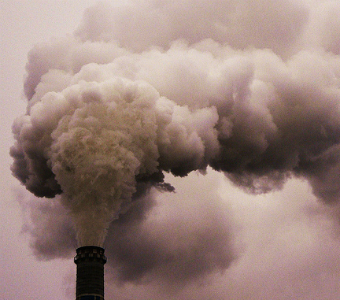China urged to pursue renewable energy investments, not coal, during summit with eastern European leaders
Bucharest — As the China – Central and Eastern European Countries summit gets underway today in Bucharest, NGOs from across the CEE region have written to Chinese Premier Li Keqiang calling on him to support renewable energy and energy efficiency investments, instead of the series of coal projects currently planned across eastern and south-east Europe.
25 November 2013

Bucharest — As the China – Central and Eastern European Countries summit gets underway today in Bucharest, NGOs from across the CEE region* have written to Chinese Premier Li Keqiang calling on him to support renewable energy and energy efficiency investments, instead of the series of coal projects currently planned across eastern and south-east Europe.
Coal projects in the region potentially involving Chinese companies and banks include Ugljevik III and Tuzla 7 in Bosnia and Herzegovina, Pljevlja II in Montenegro, Rovinari in Romania, Kostolac B3 in Serbia and a series of projects in Ukraine to convert gas power stations to coal.
“The coal sector has already caused significant harm to people’s health and the environment in the region, as well as contributing heavily to climate change. In Serbia alone, air pollution from coal is estimated to cause 2100 premature deaths annually, while in Poland the figure is 3500”, write the NGOs in their letter to Premier Li Keqiang.
“Given that many of the planned investments by Chinese companies in our region are in the energy sector, we are urging the Chinese authorities to consider the need for our countries to phase out the use of fossil fuels and concentrate on a transformation to an energy-efficient economy, based on environmentally sustainable forms of renewable energy,” they conclude.
The new planned power stations would prevent the countries from reducing greenhouse gas emissions in line with the EU’s long-term climate goals and from complying with EU pollution standards. They will also come with significant health costs, including premature deaths. [1]
Information available so far on the offers submitted for the Pljevlja II lignite power plant in Montenegro and the Kostolac B3 plant in Serbia suggest that pollution levels will exceed the levels allowed by the EU Industrial Emissions Directive [2].
Such plants would also not be allowed to be constructed today in China, according to the world-class standards introduced in China as of the beginning of 2012. [3]
Such concerns are supported by the fact that the Stanari lignite power plant in Bosnia and Herzegovina, which is currently under construction by China’s Dongfang and financed by the China Development Bank, was last week revealed to be allowed to emit between 2 and 10 times as much as EU pollution legislation permits. [4]
Contacts
Pippa Gallop, CEE Bankwatch Network
pippa.gallop at bankwatch.org
+385 99 755 9787
*The list of NGOs includes:
CEE Bankwatch Network
Center for Environment, Bosnia and Herzegovina
Center for Ecology and Energy, Bosnia and Herzegovina
Green Home, Montenegro
Center for Ecology and Sustainable Development, Serbia
National Ecological Center of Ukraine
Bankwatch Romania
Notes for editors
Read the letter sent by NGOs here:
https://bankwatch.org/sites/default/files/Regional-letter-ChinaPM-25Nov2013.pdf
[1] For more details, see HEAL: The Unpaid Health Bill: How coal power plants make us sick, 2013,
http://www.env-health.org/IMG/pdf/heal_report_the_unpaid_health_bill_how_coal_power_plants_make_us_sick_final.pdf
Almost all of the countries in the region are either in the EU already or aspire to join. The EU has policy goals to reduce greenhouse gas emissions by 80-95% and to almost completely decarbonise the energy sector by 2050. See:
http://ec.europa.eu/energy/energy2020/roadmap/index_en.htm and http://ec.europa.eu/clima/policies/roadmap/
[2] For more details on initial offers submitted for Pljevlja II, please see Risks for the Pljevlja II project due to inadequate environmental standards of the preliminary offers, September 2013,
https://bankwatch.org/sites/default/files/Pljevlja-inadequate-standards.pdf.
For Kostolac B3, the draft version of the Environmental Impact Assessment at
http://www.merz.gov.rs/sites/default/files/TE_Kostolac%20B3%20EIA%20oktobar%202013-v2.pdf
shows that the plant is not likely to be in line with the Industrial Emissions Directive’s limit on NOx of 150 mg/Nm3.
[3] Emission standard of air pollutants for thermal power plants GB 13223-2011 replacing GB13223-2003 and putting into effect as of Jan.1, 2012,
http://english.mep.gov.cn/standards_reports/standards/Air_Environment/Emission_standard1/201201/t20120106_222242.htm
unofficial English translation at:
http://switchboard.nrdc.org/blogs/bfinamore/NRDC%20Unofficial%20English%20Summary.docx
[4] For more information, see:
Center for Environment and CEE Bankwatch Network: Stanari power plant in Bosnia allowed to pollute 2-10 times higher than EU limits, new expert analysis shows, 21 November 2013:
https://bankwatch.org/news-media/for-journalists/press-releases/stanari-power-plant-bosnia-allowed-pollute-2-10-times-high
Never miss an update
We expose the risks of international public finance and bring critical updates from the ground – straight to your inbox.
Theme: Energy & climate
Location: Bosnia and Herzegovina | Montenegro | Romania | Serbia | Ukraine
